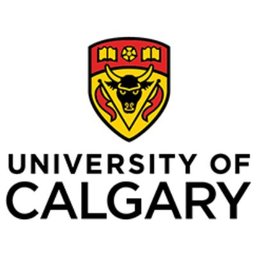Peer Support Worker, Emergency Medicine
Calgary, AB, CA, Canada
Job Description
Description
The
Department of Emergency Medicine
in theCumming School of Medicine
invites applications for 8Peer Support Workers
. This Fixed Term Recurring Part-time position is for approximately 28 months (based on length of grant funding), with the possibility of extension.This position reports to the Principal Investigator.
The Peer Support Worker will be primarily responsible for delivering peer support to emergency department patients seeking care for a substance related concern in adult emergency departments in Calgary. They will use their own lived experience with addictions along with best practices in Peer Support to inspire hope, offer mentorship, advocate for patient needs and connect patients to appropriate community resources. They will use principles of patient centeredness approaching patients from a strengths-based framework that is trauma informed and culturally sensitive. They will act as a liaison to help assess patient goals and patient self-assessments with respect to validated addictions severity tools as well as assessing change using the Recovery Capital Tool, BARC-10, the PROM-AR tool or similar tools.
No minimum number of hours is set for this position. The Peer Support Worker will be required to work on a flexible schedule as determined by the Principal Investigator. This may include evenings, weekends and some overnight shifts.
Ability to perform 6-8 hours of computer work alongside 6-8 hours telephone work.
Physical ability to move around the emergency department and assist with minimal lifting or moving of patient belongings
Is aware of potential exposure to environmental conditions commonly experienced in the emergency department including: blood and body fluids, airborne pathogens, exposure to moderate-loud noises, frequent interruptions, fluorescent lights and physical concerns related to works spaces/desk work around the emergency department
Summary of Key Responsibilities
(job functions include but are not limited to):Direct Patient Interaction:
Serve as an active member of the patient's University of Calgary Department of Emergency medicine team while the patient is in the ED (i.e., provide warm handoff to inpatient/community support workers) Assure that all interactions and assessments build on the patients' strengths and resiliencies Support the patient to identify their options and participate in decisions related to establishing and achieving recovery goals Support the patient develop problem-solving skills so they can respond to challenges in their recovery, as appropriate Support patient through role modelling, to establish/re-establish and maintain healthy interpersonal relationships with health care providers, as well as persons, such as family members, significant others, friends and/or family members of choice Assist with linkage to and systems navigation to providers, programs and services that facilitate the patients process of identifying and addressing their barriers to engaging in medical treatment, as well as addictions care Obtain and share clinically relevant information with relevant the emergency medicine Health Care Provider to inform admission or discharge, with patient's permission (i.e., substance use, substance withdrawal, medical history missed or overlooked, housing, social supports, safety, etc.) Provide a model for staff and physicians demonstrating that recovery is possible and provide education regarding the damaging role of stigma plays in undermining recovery Actively promote and facilitate education and awareness of a peer support worker role, recovery-oriented and general addictions care, and role model person directed care As applicable, attend and participate in regular clinical case reviews and staff meetings As applicable and per operational leadership direction, participate in patient care planning (ED triage, rounds, case conference, etc.)
Advocacy:
Serve as the patient's individual advocate Advocate within systems to promote person-centred addictions support services Assure that the patients choices define and drive their recovery planning process, and recovery goals Support patient experience through advocating on behalf of patients to other Health Care Providers (i.e., physicians, nurses, social workers, protective service officers and community providers).
Mentoring, Liaison & Evaluation:
Engaging with patients while they are in the Emergency Department experiencing concerns related to issues of addiction/substance misuse and serve to supports in helping individuals with their self-determined goals and personal recovery plan Serve as a role model of a person in recovery (demonstrate healthy behaviours expected of a person in recovery) Establish and maintain a "peer" relationship, rather than a hierarchical relationship Promote social learning through shared experiences, as appropriate Supports patients with completing self-administered tools specific to substance use disorder, while patient is in the Emergency Department (i.e., the Recovery Capital Tool, BARC-10 and/or PROM-AR) Support patients in identifying and communicating their self-identified priorities/issues. Work collaboratively with the patient and Health Care Provider team to address patient centered goals and identify solutions
Qualifications / Requirements:
Completion of grade 12 education or equivalent Lived experience with addiction(s) with two years of sobriety (must identify in cover letter). Must be able to identify and willing to share one's personal recovery journey experience Minimum two (2) years of experience working with diverse and marginalized populations (work, practicum or volunteer) Demonstrated familiarity with Indigenous communities, history, and culture an asset Strong affiliation with Indigenous communities across Western Canada, and extensive knowledge on indigenous cultures Demonstrate strong verbal and written communication skills (i.e., active listening, patient communication, strength-based approach) Demonstrate knowledge of systemic issues, such as poverty and stigma Demonstrated time management skills with the ability to organize and prioritize competing demands Understand and apply information and communication technologies, such as Connect Care, Microsoft Suite including Outlook for emails and data collection tools such as Red Cap Completion of a peer support training program is an asset Demonstrate self-awareness and self-reflection to support working in a respectful manner alongside other team members in a collaborative manner to make and maintain relationships Have an interest in the emergency department and the unique environment it presents as a workplace Have a strong self-care plan and/or work to develop one as part of this role Have an interest in capturing stories, working with a research team and applying evaluations-based approaches to measure the impact of peer support work in the ED (no prior research experience required. Training will be provided)
Application Deadline:
November 1, 2025We would like to thank all applicants in advance for submitting their resumes. Please note, only those candidates chosen to continue on through the selection process will be contacted.
This position is part of the AUPE bargaining unit, and falls under the General Job Family, Phase 4.
For a listing of all management and staff opportunities at the University of Calgary, view our
Management and Staff Careers website
.About the University of Calgary
UCalgary is Canada's entrepreneurial university, located in Canada's most enterprising city. It is a top research university and one of the highest-ranked universities of its age. Founded in 1966, its 36,000 students experience an innovative learning environment, made rich by research, hands-on experiences and entrepreneurial thinking. It is Canada's leader in the creation of start-ups. Start something today at the University of Calgary. For more information, visit ucalgary.ca.
The University of Calgary has launched an institution-wide Indigenous Strategy committing to creating a rich, vibrant, and culturally competent campus that welcomes and supports Indigenous Peoples, encourages Indigenous community partnerships, is inclusive of Indigenous perspectives in all that we do.
As an equitable and inclusive employer, the University of Calgary recognizes that a diverse staff/faculty benefits and enriches the work, learning and research experiences of the entire campus and greater community. We are committed to removing barriers that have been historically encountered by some people in our society. We strive to recruit individuals who will further enhance our diversity and will support their academic and professional success while they are here. In particular, we encourage members of the designated groups (women, Indigenous peoples, persons with disabilities, members of visible/racialized minorities, and diverse sexual orientation and gender identities) to apply. To ensure a fair and equitable assessment, we offer accommodation at any stage during the recruitment process to applicants with disabilities. Questions regarding [diversity] EDI at UCalgary can be sent to the Office of Institutional Commitments (
equity@ucalgary.ca
) and requests for accommodations can be sent to Human Resources (hrhire@ucalgary.ca
).Do you have most but not all the qualifications? Research show that women, racialized and visible minorities, and persons with disabilities are less likely to apply for jobs unless they meet every single qualification. At UCalgary we are committed to achieving equitable, diverse, inclusive and accessible employment practices and workplaces and encourage you to apply if you believe you are right for this role.
We encourage all qualified applicants to apply, however preference will be given to Canadian citizens and permanent residents of Canada.
Beware of fraud agents! do not pay money to get a job
MNCJobz.com will not be responsible for any payment made to a third-party. All Terms of Use are applicable.
Job Detail
-
Job IdJD2983392
-
IndustryNot mentioned
-
Total Positions1
-
Job Type:Full Time
-
Salary:Not mentioned
-
Employment StatusPermanent
-
Job LocationCalgary, AB, CA, Canada
-
EducationNot mentioned


